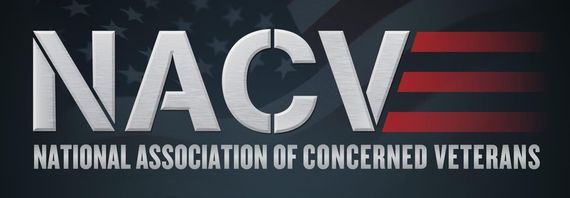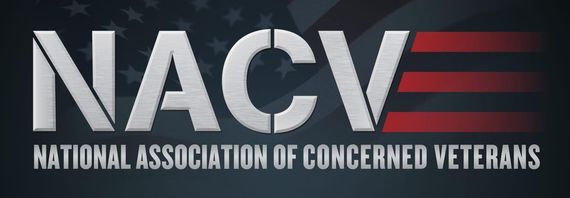Focusing on the Issues of Combat Veterans
Implementing comprehensive programs to assist veterans in returning to civilian life as productive citizens.
LEt's Welcome our New sEcretary
It Is Our Honor to Welcome The Honorable Secretary Douglas Collins
Over six months late, but NACV would like to welcome the Honorable Secretary Douglas Collins as this administration's secretary for the Department of Veterans Affairs. We look forward to working with Secretary Collins and helping DVA improve how we provide care and services to veterans and their families. We hope to meet with the Secretary in the near future and share some of our experiences, lessons learned, what has worked, and recommendations for making the DVA more effective, more accountable, and more accessible and for cost savings and how to work more collaboratively with other agencies, with the states, and with the VSOs and public and private sectors.
NACV's Unwavering resolve
Being stuck in survival mode can make it challenging to focus on important goals. At NACV, our veterans support services help individuals overcome these obstacles, providing the guidance needed to focus on the mission at hand. This determination is at the core of NACV's resolve.
The National Association of Concerned Veterans transforms veterans' and their families' experiences into a unified vision of freedom, offering comprehensive support services to meet their needs.
History & Background of NACV
The National Association of Concerned Veterans (NACV), originally founded in 1968 as the National Association of Collegiate Veterans, was one of the first organizations specifically for Vietnam veterans. By the early 1970s, it had moved its headquarters to Washington, D.C., expanded to over 3,000 chapters nationwide, and became a grassroots network focused on “veterans helping veterans.” While it began with a Vietnam-era focus, NACV has always served veterans from all service periods, advocating for fair treatment, comprehensive support, and systemic improvements to the transition from military to civilian life.
Past Achievements & Advocacy History
NACV has played a key role in numerous veteran advocacy wins, including the recognition of PTSD (originally Post-Vietnam Syndrome), acknowledgment of dioxin-related health issues, discharge upgrade programs, veteran court initiatives, job and housing support programs, and educational benefits reform. They have historically worked on alternative sentencing, homeless veteran support, and employment programs, often pioneering concepts later adopted nationwide.
Learn About
Great expectations
A NACV Effort
The Great Expectations model is a comprehensive readjustment transition and re-entry program designed for veterans, military personnel, and their families.
GE is undergirded by classical conditioning, along with attitude and behavior modification. GE incorporates the unique “Touches” program component, which solicits specific, immediate (on demand), high-frequency responses from program participants.
NACV MILESTONES
At its peak, NACV had over 3300 chapters in over 35 states around the country. Between 1978-present, NACV has trained and employed over 3500 veterans in the DC metro area. With our feet on the pavement, our collective efforts have weatherized and renovated over 500 homes and apartments for our American Veteran forces.
With our volunteer teams, we have performed hundreds of contracts in environmental clean up & energy conservation. We've even implemented training contracts with SBA, DOL, EPA in hazmat, and entrepreneurism!
TAKE A LOOK AT THE NUMBERS
20%
of America’s veterans experience tremendous difficulty readjusting to civilian life.
10k
of these veterans alone are located within The District of Columbia.
23%
of homeless Americans are United States Military veterans.
7%
of America’s veterans experience severe PTSD symptoms they may not have the means to treat.
NACV PARTNERSHIPS
The National Association of Concerned Veterans operates through continued partnerships with:
- National Capital Veterans Coalition
- DC Office of Veterans Affairs
- VA Medical Center, CRRC, Office, and Central Office
- Veterans Services Organizations
- Veterans on the Rise
- Student Veterans of America DC Agencies
- Faith and Community Based Orgs
- Life Management Foundation
- AACJC/Educational Institutions/Private Sector Groups
To learn more about our partnerships and affiliations with these groups, do not hesitate to reach out to us, and we will be more than happy to provide you with more information and get you in touch with the right organizations.
Making a Real Difference for American Veterans
NACV was incorporated in 1968 as the National Association of Collegiate Veterans and moved to Washington, DC, in 1972, where it changed its name to “Concerned” veterans. With the efforts of our Great Expectations initiative, we strive to tackle these issues directly through real change from Washington, DC. In our presentation below, we provide further statistical facts to support our mission and what NACV has been achieving since its establishment.
Fight Against Veteran Homelessness
and unfair Rent gouging
The available housing options for veterans who were previously or are at risk of becoming homeless can progress from difficult circumstances, such as loan defaults, foreclosures, rental evictions, relationship breakdowns, and strained family or friend relationships, to living on the streets or in shelters, incarceration, group homes, halfway houses, Oxford Houses, rooming houses, shared rooms, single room occupancy (SRO) housing, and finally to permanent or temporary apartments and homes in the form of vouchers and supportive housing.
Our goal is to put an end to this unfair treatment of our veterans. Please contact us today to learn how you can help support this cause.
NACV ACCOMPLISHMENTS AND SUPPORT EFFORTS 1968-1978
With over 50 years of change that has provided countless veterans with life-altering affirmation and assistance, we are proud to have accomplished the following:
- VA and DOD recognized and acknowledged PTSD and Agent Orange
- Set up discharge upgrading programs nationally with The Veterans Law Project
- Start Veterans Employment & Training Services in DOL
- Helped start SBA Vets
- Helped start Vet Rep on Campus
- Co-founded National Association of Veterans Programs Administrators
- Pushed for Veterans Costs of Instruction Payments Program in HEW
Leave us your info
Let Us Know How We Can assist
And NACV Will get right back to you.
Sign up to our newsletter
National Association of Concerned Veterans FAQs
Veteran Support Services
Have a question? Need help? Want to know more about NACV? If you can't find what you are looking for, CONTACT US TODAY.



